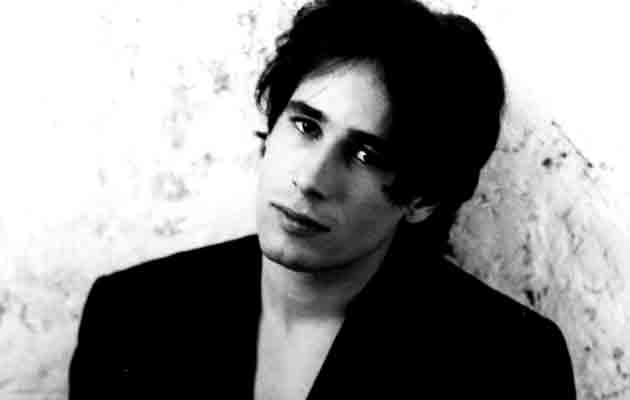“He would do mostly covers,” Michael Tighe told Uncut in 2007. “Nina Simone. Nusrat Fateh Ali Khan. I was very impressed with his knowledge. I thought he had really good taste. What really sent me was when I heard him do ‘Hallelujah’. That’s when I felt I was in the presence of genius. That made me see white flashes.” Buckley had heard Leonard Cohen’s hymn-like “Hallelujah” in a version performed by John Cale on a Cohen tribute album. It had become a feature of Jeff’s floating Sin-é repertoire – “Strange Fruit”, The Smiths’ “I Know It’s Over”, Bob Dylan, Edith Piaf – which grew by the week.
“I remember him opening once with ‘Sweet Thing’ from Astral Weeks and closing with ‘The Way Young Lovers Do’ from the same album,” remarks Nicholas Hill, a radio DJ for New Jersey’s WFMU. “To have the gall even to attempt something from Astral Weeks – usually that doesn’t go over great. But this guy could reinterpret songs, sing them completely differently every time. He was investigating where they could take him. He was creating something bigger than the song.
For the first three minutes, you wouldn’t even know what the song was.”
Transported but relaxed, Buckley would talk, do impersonations, comment on what the clientele was wearing (“Nice sandals”) and sing adverts and jingles that he remembered from his childhood. “The motherfucker was so funny,” says Chris Dowd. “He was like… if somebody took Lenny Bruce and Jim Carrey and mixed them into one person. A really dark sense of humour combined with an incredible ability to mimic everything. He had a photographic memory for music.” Nicholas Hill concurs: “Everyone was drawn to Jeff’s personality. He was extremely magnetic and charismatic. Men fell in love with him. Women felt he was their future husband. It was just like, ‘Holy shit, this is a major dude.’ There was just no denying it.”
“Sin-é was this teeny little place with a couple of tables and chairs,” says Kate Hyman, “but it was a magical, fun time because there was no pressure. I was an A&R person, but I was enjoying listening to Jeff and not having to think about the business.” Steve Abbott of Big Cat, who lived a two-minute walk from Sin-é, chatted to Buckley one night and was intrigued to find they shared a love of The Groundhogs – as well as a taste for Guinness. Abbott said he’d like to do a record deal. Hyman, too, wanted to sign Jeff to Imago at some point. But things were moving quickly. One night Hal Willner showed up at Sin-é with a friend named Steve Berkowitz, an A&R man for the major label Columbia.
Abbott: “I left New York to go touring with Pavement, who were on my label. Within the week and a half that I was away, the record industry discovered Jeff Buckley. He now had a lawyer. There was one ridiculous night where I saw three limos outside Sin-é. You didn’t see limos in the East Village. This was when we still had muggings and killings, before the area was gentrified. I couldn’t even get in the door of Sin-é. I kept getting pushed back out again.”
Hyman: “When the limos started showing up, it was funny and silly and none of us took it seriously. But suddenly there was a bidding war. I was in there for a minute, but I was at a small label and there was no way we were going to beat out the majors.” There was another stumbling block for Imago that Hyman is slightly reluctant to reveal. “Well, I guess it doesn’t matter now,” she says. “My boss, Terry Ellis – I took him to see Jeff and his comment was, ‘He’s really good, but he has no charisma.’ He actually said that. Really.”
Buckley’s Sin-é apprenticeship didn’t end in formal goodbyes – he appeared there many more times, including a gig with his band shortly before recording Grace – but the innocence had been lost. “His initial crowd were disappointed because they couldn’t see him in a club with eight other people,” says Willner wryly. It was too late. The cat was out of the bag.


